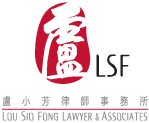Best Collaborative Law Lawyers in Macao
Share your needs with us, get contacted by law firms.
Free. Takes 2 min.
Free Guide to Hiring a Family Lawyer
List of the best lawyers in Macao, Macao
About Collaborative Law in Macao, Macao
Collaborative Law is an alternative dispute resolution process that empowers parties to resolve their legal conflicts outside of the courtroom. In Macao, Collaborative Law is gaining attention as a modern method for addressing civil disputes, especially in family and commercial law. This process involves both parties, their respective trained lawyers, and sometimes neutral experts who collaborate in a series of meetings to negotiate mutually acceptable solutions. Unlike traditional litigation, the focus is on open communication, cooperation and respect, aiming to reach an agreement that meets the underlying interests of all involved. In Macao, Collaborative Law offers a confidential, cost-effective and less adversarial alternative to going to court.
Why You May Need a Lawyer
People often seek legal assistance in Collaborative Law for several reasons, such as:
- Divorce or separation, particularly when seeking amicable arrangements regarding property, finances or child custody
- Inheritance disputes among family members
- Business partnership dissolutions where ongoing relationships or confidentiality are valued
- Employment disputes that benefit from privacy and cooperation
- Disagreements over contracts, leases or other civil matters where avoiding litigation is preferable
Lawyers trained in Collaborative Law play a crucial role in guiding clients through negotiations, protecting their rights and ensuring agreements are legally valid and enforceable under Macao law.
Local Laws Overview
Macao’s legal system, based on the civil law tradition, recognizes a variety of alternative dispute resolution mechanisms, including Collaborative Law. While the specific term “Collaborative Law” may not be expressly detailed in Macao's statutes, its principles may be applied within mediation and civil procedures. Local regulations emphasize the importance of written agreements and the enforceability of settlements reached outside court, provided they comply with public order provisions and established laws. Family law, contract law and inheritance law are particularly relevant areas where Collaborative Law can be applied. Practitioners must be licensed lawyers in Macao and are encouraged to undergo specialized training in Collaborative Law techniques to effectively facilitate negotiations.
Frequently Asked Questions
What is the main difference between Collaborative Law and mediation in Macao?
Collaborative Law involves both parties and their lawyers working together in negotiation sessions, whereas mediation usually involves a neutral mediator facilitating discussions with or without the presence of lawyers. In Collaborative Law, the lawyers remain directly involved and committed to helping parties reach a settlement.
Is a Collaborative Law process legally binding in Macao?
Any agreement reached through Collaborative Law is not automatically binding, but it becomes enforceable once the parties formalize the settlement in writing and, if required, submit it to the relevant authorities or court for approval.
What types of disputes are best suited for Collaborative Law in Macao?
Collaborative Law is well suited for disputes involving ongoing relationships, such as family matters (divorce, child custody), business partnerships and inheritance issues, where parties wish to maintain respect and confidentiality.
Do both parties need to agree to use Collaborative Law?
Yes, both parties must voluntarily agree to use the Collaborative Law process. If either party wishes to withdraw, the process cannot continue, and traditional litigation may be pursued.
Are Collaborative Law lawyers required to have special training in Macao?
While there is no explicit statutory requirement, it is strongly recommended to choose lawyers who have undergone specialized Collaborative Law training to ensure proper representation and a successful process.
What happens if parties cannot reach an agreement through Collaborative Law?
If no agreement is reached, the Collaborative Law process ends, and parties are free to pursue other resolution methods, including litigation. In most cases, the collaborative lawyers must withdraw if the matter proceeds to court.
How much does Collaborative Law cost in Macao?
Costs vary depending on the complexity of the dispute, the number of sessions and the professionals involved. Generally, Collaborative Law is considered more cost-effective compared to litigation due to its efficiency and shorter duration.
Is the Collaborative Law process confidential?
Yes, sessions and discussions within the Collaborative Law process are confidential, ensuring privacy for both parties unless the parties otherwise agree or the law requires disclosure.
Can Collaborative Law be used for child custody and support matters?
Yes, Collaborative Law is particularly useful for negotiating child custody, visitation and support arrangements in a way that prioritizes the best interests of the children and cooperation between parents.
Are agreements reached in Collaborative Law recognized by Macao courts?
Courts in Macao generally recognize and may endorse agreements achieved through Collaborative Law as long as they comply with local laws and public policy requirements.
Additional Resources
If you are interested in learning more or seeking assistance with Collaborative Law in Macao, these local resources and organizations may be helpful:
- Macao Lawyers Association (Associação dos Advogados de Macau) - Regulates the legal profession and can help you find experienced Collaborative Law practitioners
- Macao Legal Affairs Bureau (Direcção dos Serviços de Assuntos de Justiça) - Provides information on legal services and alternative dispute resolution
- University of Macau - Faculty of Law - Offers research and public seminars on alternative dispute resolution including Collaborative Law
Next Steps
If you believe Collaborative Law may be suitable for your situation in Macao, follow these steps:
- Identify the issue or dispute you wish to resolve and confirm that Collaborative Law is an appropriate method
- Contact a lawyer in Macao with specialized Collaborative Law training
- Discuss the process, your goals and potential costs with your lawyer
- Ask your lawyer to reach out to the other party or their legal representative to propose the Collaborative Law process
- Start the process by signing a participation agreement and attending the first collaborative session
- If an agreement is reached, ensure it is correctly documented and, where necessary, submitted for official approval to make it legally enforceable
Engaging an experienced Collaborative Law lawyer will help safeguard your interests and ensure the process moves smoothly toward a fair and durable resolution.
Lawzana helps you find the best lawyers and law firms in Macao through a curated and pre-screened list of qualified legal professionals. Our platform offers rankings and detailed profiles of attorneys and law firms, allowing you to compare based on practice areas, including Collaborative Law, experience, and client feedback.
Each profile includes a description of the firm's areas of practice, client reviews, team members and partners, year of establishment, spoken languages, office locations, contact information, social media presence, and any published articles or resources. Most firms on our platform speak English and are experienced in both local and international legal matters.
Get a quote from top-rated law firms in Macao, Macao — quickly, securely, and without unnecessary hassle.
Disclaimer:
The information provided on this page is for general informational purposes only and does not constitute legal advice. While we strive to ensure the accuracy and relevance of the content, legal information may change over time, and interpretations of the law can vary. You should always consult with a qualified legal professional for advice specific to your situation.
We disclaim all liability for actions taken or not taken based on the content of this page. If you believe any information is incorrect or outdated, please contact us, and we will review and update it where appropriate.









